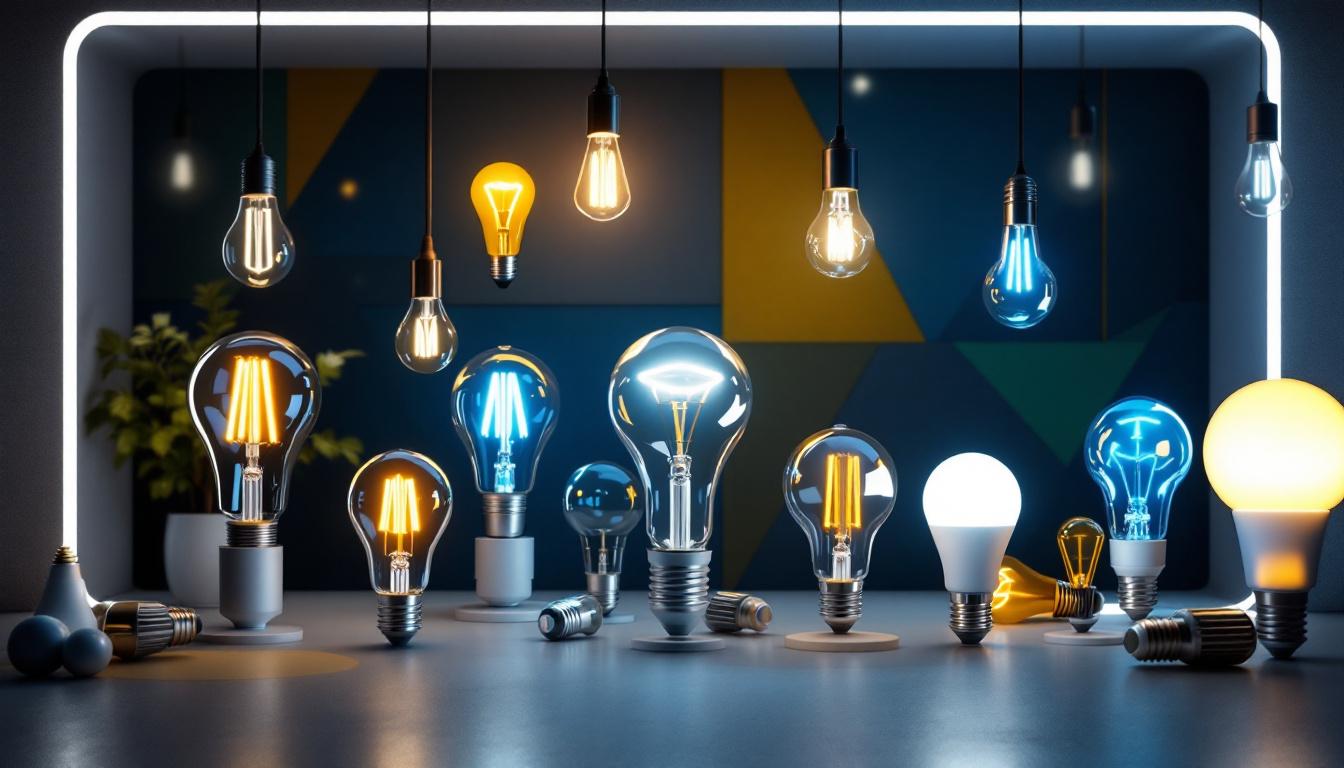
In the competitive world of lighting contracting, understanding the nuances of industrial shops can significantly enhance a contractor’s business prospects. The right lighting solutions not only improve the functionality of a workspace but also elevate the overall aesthetic, thereby attracting more clients. This article delves into how lighting contractors can leverage industrial shop expertise to boost their businesses.
Industrial lighting is a critical component of any manufacturing or warehouse environment. It directly affects productivity, safety, and even employee morale. Proper lighting can reduce accidents, enhance visibility, and create a more pleasant working atmosphere. For lighting contractors, understanding the specific needs of industrial spaces is essential for providing tailored solutions that meet client expectations.
Research has shown that well-lit environments can lead to increased productivity. In industrial settings, where tasks often require precision and attention to detail, the right lighting can make a significant difference. By offering solutions that maximize natural light and minimize shadows, contractors can help businesses enhance their operational efficiency.
Moreover, the use of energy-efficient lighting systems can lead to substantial cost savings over time. By recommending LED fixtures or smart lighting controls, contractors can help clients reduce their energy consumption, which is a compelling selling point in today’s eco-conscious market. These advancements not only lower utility bills but also contribute to a company’s sustainability goals, which can enhance its reputation among environmentally conscious consumers and stakeholders.
Safety is paramount in industrial environments. Poor lighting can lead to accidents, injuries, and even fatalities. Lighting contractors have a responsibility to ensure that their designs comply with safety regulations and standards. This includes providing adequate illumination in high-risk areas, such as loading docks, stairwells, and machinery zones.
By emphasizing safety in their proposals, contractors can position themselves as trusted partners in their clients’ operations. This not only builds credibility but also fosters long-term relationships that can lead to repeat business. Furthermore, incorporating advanced lighting technologies such as motion sensors and emergency backup systems can further enhance safety protocols. These systems ensure that critical areas remain illuminated even during power outages, thereby safeguarding employees and reducing liability for the employer.
Additionally, the psychological impact of lighting on workers cannot be overlooked. Studies indicate that bright, well-distributed lighting can help reduce fatigue and improve focus, which is particularly important in environments where employees are required to work long hours. By creating a lighting design that considers both functionality and comfort, contractors can significantly contribute to a healthier workplace culture, ultimately leading to lower turnover rates and higher job satisfaction among employees.
Every industrial shop has unique requirements based on its operations, layout, and workforce. As a lighting contractor, taking the time to understand these needs can set a business apart from the competition. Engaging with clients through consultations and site assessments can provide valuable insights into their specific challenges and preferences. By fostering open communication, contractors can build trust and establish long-term relationships that are beneficial for both parties. This initial investment in understanding client needs often pays off in the form of repeat business and referrals, as satisfied clients are more likely to recommend services to their peers.
Site assessments are a crucial step in the lighting design process. By evaluating the existing lighting conditions and understanding the workflow of the space, contractors can identify areas that require improvement. This hands-on approach not only demonstrates expertise but also shows clients that their needs are a priority. Furthermore, these assessments can reveal potential safety hazards, such as poorly lit walkways or workstations, which can be addressed through thoughtful lighting solutions.
During these assessments, contractors should take note of factors such as the height of ceilings, the color of walls, and the types of activities performed in different areas. This information is vital for creating a lighting plan that is both functional and aesthetically pleasing. Additionally, contractors should consider the psychological effects of lighting on workers, as studies have shown that well-lit environments can enhance productivity and reduce fatigue. By incorporating elements like natural light and adjustable lighting options, contractors can create spaces that not only meet operational needs but also promote employee well-being.
Different industries have varying lighting requirements. For instance, a manufacturing facility may need bright, uniform lighting to ensure quality control, while a warehouse might benefit from motion-sensor lights to save energy when areas are unoccupied. Understanding these nuances allows contractors to tailor their solutions effectively. Moreover, compliance with industry-specific regulations and standards is essential; contractors must be well-versed in the guidelines that govern lighting in sectors such as healthcare, food processing, and logistics.
By specializing in certain industries, contractors can position themselves as experts in those fields. This specialization can lead to increased referrals and a stronger reputation within specific market segments. Additionally, staying updated on the latest advancements in lighting technology, such as energy-efficient LED options and smart lighting systems, can further enhance a contractor’s offerings. By providing innovative solutions that align with industry trends, contractors not only meet current client needs but also anticipate future demands, ensuring they remain competitive in a rapidly evolving market.
Advancements in technology have revolutionized the way lighting contractors design and implement solutions. From smart lighting systems to advanced design software, leveraging these tools can enhance the quality of service provided to clients.
Smart lighting systems allow for greater control and flexibility in industrial environments. Features such as dimming, scheduling, and remote control can help businesses optimize their lighting based on real-time needs. For contractors, being knowledgeable about these technologies can create additional selling points when presenting proposals.
Moreover, smart lighting can contribute to energy savings, which is an attractive proposition for cost-conscious clients. By integrating these systems into their offerings, contractors can differentiate themselves in a crowded marketplace. Additionally, the integration of sensors and automation can further enhance the functionality of smart lighting. For example, occupancy sensors can automatically adjust lighting levels based on the presence of individuals in a space, ensuring that energy is not wasted in unoccupied areas. This not only conserves energy but also extends the lifespan of lighting fixtures, providing long-term benefits to clients.
Utilizing design software can streamline the planning process and enhance client presentations. Visualization tools allow contractors to create realistic renderings of proposed lighting designs, helping clients visualize the end result before implementation. This can be particularly beneficial in gaining client approval and ensuring satisfaction with the final product.
By investing in the latest design technology, contractors can improve their efficiency and accuracy, ultimately leading to better project outcomes and happier clients. Furthermore, these tools often come equipped with features that allow for real-time adjustments and simulations, enabling contractors to experiment with different lighting scenarios and configurations without the need for physical prototypes. This not only saves time and resources but also fosters a collaborative environment where clients can actively participate in the design process, providing feedback and preferences that can be immediately incorporated into the project. Such engagement can lead to stronger client relationships and increased trust in the contractor’s expertise.
In a competitive industry, effective marketing strategies are essential for attracting and retaining clients. Lighting contractors must leverage both traditional and digital marketing techniques to reach their target audience effectively.
Having a strong online presence is crucial in today’s digital age. A well-designed website that showcases past projects, client testimonials, and services offered can significantly enhance credibility. Additionally, maintaining active social media profiles can help contractors engage with potential clients and share valuable content related to industrial lighting.
Content marketing, such as blogs and articles, can also position contractors as thought leaders in the industry. By providing insights on lighting trends, safety standards, and energy efficiency, contractors can attract an audience that values their expertise.
Networking is an invaluable tool for lighting contractors. Building relationships with other professionals in the construction and industrial sectors can lead to referrals and collaborative opportunities. Attending industry conferences and trade shows can also provide exposure and help contractors stay updated on the latest trends and technologies.
Establishing partnerships with suppliers can also be beneficial. By collaborating with manufacturers, contractors can gain access to exclusive products and pricing, which can enhance their competitive edge.
Educating clients about the importance of proper lighting and the benefits of various technologies can help contractors build trust and authority. Providing ongoing support after the installation is also crucial for maintaining client relationships.
Hosting workshops or training sessions for clients can be an effective way to demonstrate expertise and build rapport. These sessions can cover topics such as energy efficiency, maintenance of lighting systems, and the latest trends in industrial lighting. By empowering clients with knowledge, contractors can position themselves as valuable partners in their operations.
Offering maintenance and follow-up services can enhance client satisfaction and encourage repeat business. Regular check-ins can help identify potential issues before they become significant problems, ensuring that clients’ lighting systems remain efficient and effective.
By establishing a maintenance program, contractors can create a reliable revenue stream while reinforcing their commitment to customer service.
In conclusion, lighting contractors have a unique opportunity to boost their businesses by focusing on industrial shop lighting solutions. By understanding client needs, utilizing technology, and implementing effective marketing strategies, contractors can position themselves as leaders in the industry. The emphasis on safety, productivity, and energy efficiency will not only benefit clients but also enhance the contractor’s reputation and profitability.
As the demand for quality lighting solutions continues to grow, those who adapt and innovate will thrive in this dynamic market. Embracing the challenges and opportunities within the industrial lighting sector can lead to sustained success for lighting contractors.
Ready to elevate your lighting contracting business to new heights? At LumenWholesale, we provide the spec-grade lighting solutions you need to outshine the competition. Our extensive selection of high-quality products comes at unbeatable wholesale prices, ensuring you get the best value for every project. Say goodbye to local distributor markups and hello to hassle-free bulk buying with free shipping. Don’t compromise on quality or affordability. Click now to Wholesale Lighting at the Best Value and bring unparalleled efficiency, safety, and style to your industrial shop lighting installations with LumenWholesale.

Discover how pin base light bulbs can revolutionize your lighting projects by offering versatility, energy efficiency, and longevity.

Discover expert plug twist tips for lighting contractors to enhance safety, efficiency, and installation quality.

Discover how the largest LED light is revolutionizing the lighting industry, offering contractors unparalleled efficiency, sustainability, and design flexibility.

Discover how solar power wall mount lights are revolutionizing the lighting industry for contractors.